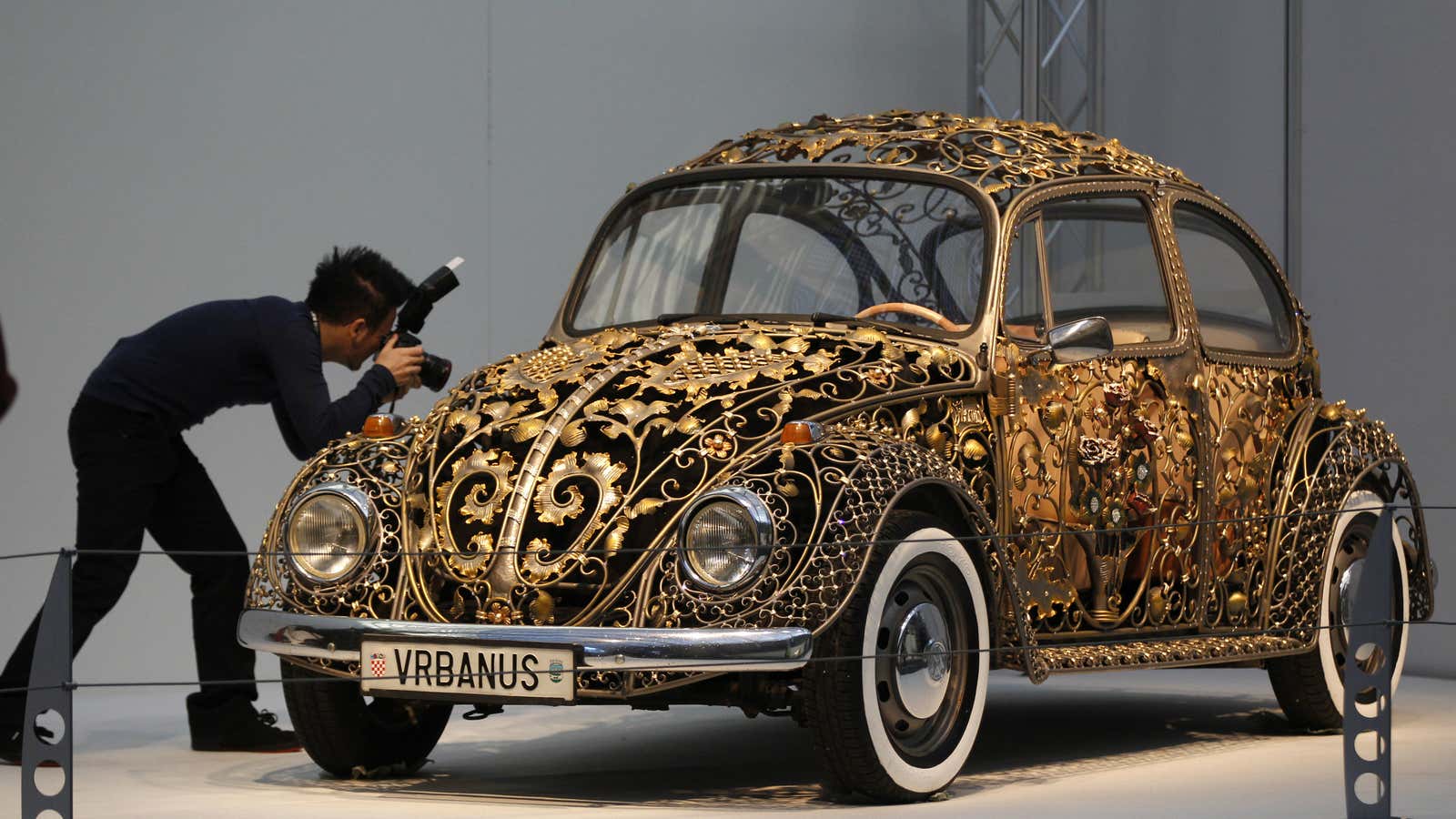Volkswagen, confronting a daunting threat to its size and prestige, is making a dramatic pivot to electric vehicles. The move has seemed a likely one since mid-September, when the German company was caught running about 11 million diesel vehicles with fake emissions controls. But the plans it articulated today surpass anything its major rivals have unveiled to date.
VW said today (Oct. 13) that it will create a standardized electric architecture that can be used in all VW Group vehicles, and is meant to allow travel of 250 to 500 kilometers (156 to 312 miles) on a single charge. The flagship will be a retooled luxury Phaeton, an $80,000 sedan for which VW had planned only diesel and plug-in hybrid versions for the 2018 or 2019 model years. Now, the Phaeton will be all-electric, the company said, an apparent challenger to the popular Tesla S.
The decision significantly raises VW’s profile in a coming electric-car collision at the end of the decade, when the world’s major carmakers are expected to introduce numerous electric models with lower price points and much better performance than those currently available.
For most of the carmakers, the driving force in the launch of electrics has been Tesla, whose CEO, Elon Musk, has fired up electric-car enthusiasm and frightened rivals into thinking they could be left out of a game-changing shift in the market.
But for VW, the impulse is pure survival in the top ranks of global carmakers because of the diesel scandal.
“The Volkswagen brand is repositioning itself for the future,” VW executive Herbert Diess said in a statement. “We are becoming more efficient, we are giving our product range and our core technologies a new focus, and we are creating room for forward-looking technologies by speeding up the efficiency program.”




